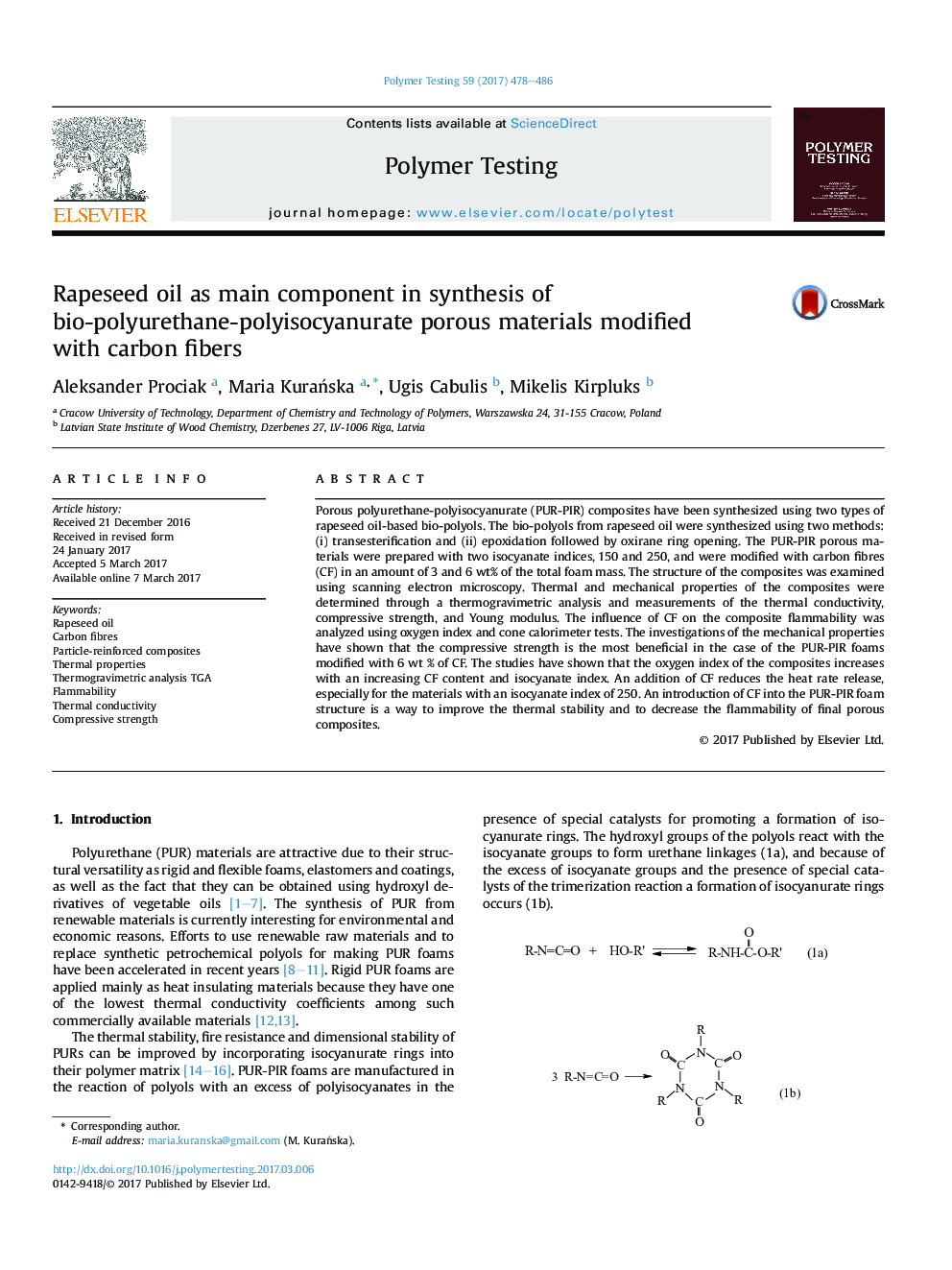| Article ID | Journal | Published Year | Pages | File Type |
|---|---|---|---|---|
| 5205525 | Polymer Testing | 2017 | 9 Pages |
Abstract
Porous polyurethane-polyisocyanurate (PUR-PIR) composites have been synthesized using two types of rapeseed oil-based bio-polyols. The bio-polyols from rapeseed oil were synthesized using two methods: (i) transesterification and (ii) epoxidation followed by oxirane ring opening. The PUR-PIR porous materials were prepared with two isocyanate indices, 150 and 250, and were modified with carbon fibres (CF) in an amount of 3 and 6Â wt% of the total foam mass. The structure of the composites was examined using scanning electron microscopy. Thermal and mechanical properties of the composites were determined through a thermogravimetric analysis and measurements of the thermal conductivity, compressive strength, and Young modulus. The influence of CF on the composite flammability was analyzed using oxygen index and cone calorimeter tests. The investigations of the mechanical properties have shown that the compressive strength is the most beneficial in the case of the PUR-PIR foams modified with 6Â wt % of CF. The studies have shown that the oxygen index of the composites increases with an increasing CF content and isocyanate index. An addition of CF reduces the heat rate release, especially for the materials with an isocyanate index of 250. An introduction of CF into the PUR-PIR foam structure is a way to improve the thermal stability and to decrease the flammability of final porous composites.
Keywords
Related Topics
Physical Sciences and Engineering
Chemistry
Organic Chemistry
Authors
Aleksander Prociak, Maria KuraÅska, Ugis Cabulis, Mikelis Kirpluks,
